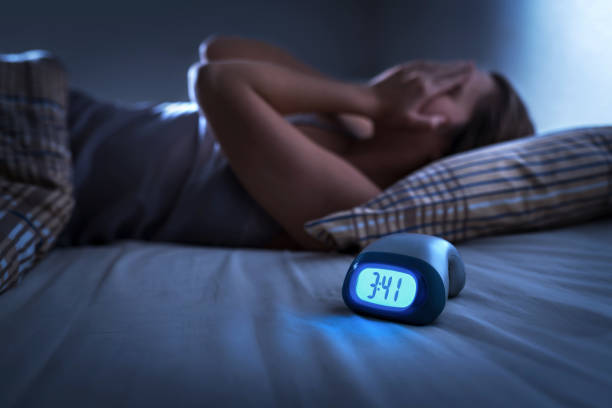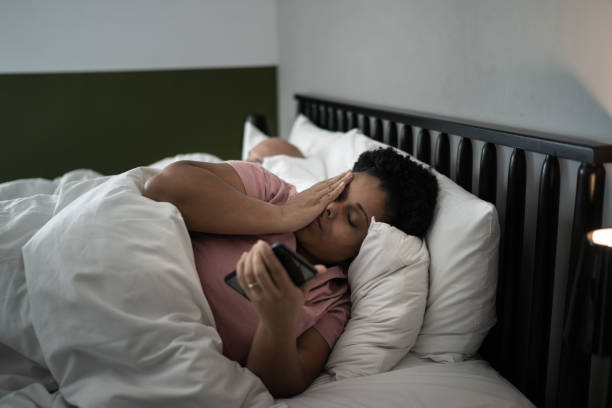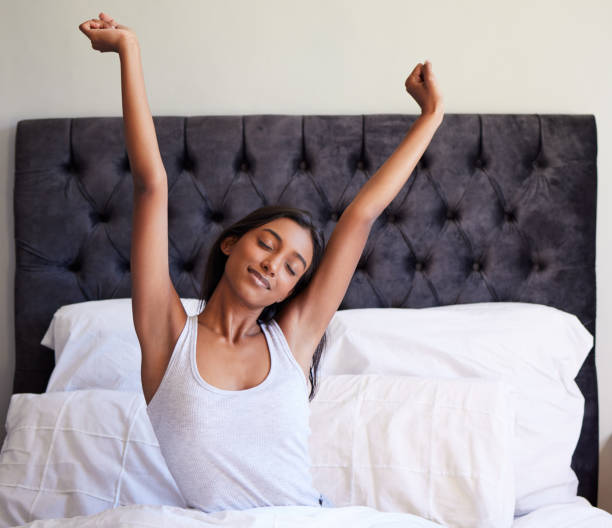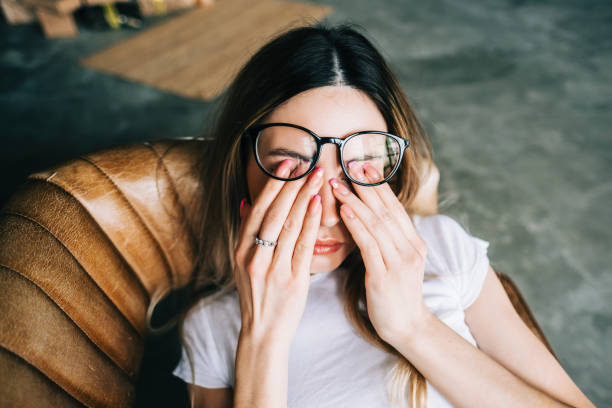
Sleep, an essential component of our lives, often falls prey to the hustle and bustle of modern living. For some, the struggle to fall asleep at a reasonable hour is more than just an occasional inconvenience—it’s a nightly battle. If you find yourself constantly unable to sleep at a conventional time, you might be grappling with Delayed Sleep Phase Disorder (DSPD). While anyone can struggle with various sleep disruptions, these issues can feel especially acute to those who have ADHD.
Delayed Sleep Phase Disorder and its Connection to ADHD
What is DSPD?

DSPD is a circadian rhythm disorder characterized by a persistent inability to fall asleep at a socially acceptable or conventional time. Individuals with DSPD often find themselves wide awake into the early hours of the morning, making it challenging to adhere to typical schedules and responsibilities. Once they achieve sleep, they are able to stay asleep for normal sleep times, but that isn’t always possible when you have a schedule to maintain.
How is it linked to ADHD?
Both conditions involve dis-regulation of the sleep-wake cycle and can manifest in similar symptoms, such as impulsivity, difficulty concentrating, and erratic sleep patterns. While the exact nature of this relationship requires further investigation, recognizing the overlap between DSPD and ADHD can guide more targeted interventions and support.
Three Ways to Overcome Delayed Sleep Phase Disorder
1) Establishing a Consistent Sleep Schedule:
Aim to go to bed and wake up at the same time every day, even on weekends. This helps regulate your body’s internal clock and reinforces healthy sleep patterns over time. Of course, when you first think about this, you might wonder how you’re meant to go to sleep and wake up at the same time if your whole problem is falling asleep on time. That is why we actually begin with a change to when you wake up, as opposed to when you are aiming to fall asleep.

If you struggle with ADHD, you know that there are times when it can be so difficult to get out of bed in the morning. We hear about this frustration often in our Woodland Hills ADHD therapy sessions. If your body’s natural tendency is to want to stay up later, the trick of getting up at the same time, no matter what, is a way to short-circuit that rhythm by tiring you out sooner and hopefully allowing you to fall asleep earlier. Even if you do it bit by bit, you can work your way toward a sleep pattern that works better for your daily life. You just have to be consistent in what you are doing. At times, when you are tempted to hit Snooze or stay out so late that you know your usual wake-up time will be a nightmare, consider how this incident will disrupt the work you’ve done and the work you still want to do. Yes, sometimes things cannot be helped, and yes, sometimes it is worth it. This is why overall consistency is the key to improving how you feel. It’s about controlling what you can so that most of the time, you’re doing what you’ve planned.
A consistent sleep schedule means that however early you have to wake up is your time to wake up. Even if there is only one day of the week where you have to be up at that time, it is beneficial to wake up at that time every day. Consider how you can utilize extra time in the morning on the days when you wake up in alignment with your routine but don’t have anywhere to be yet. You might think that it’s not doing any harm to spend that one day a week struggling because you had to force yourself to wake up an hour earlier than usual, but the truth is that if you work five days per week, you’re spending twenty percent of your work year in that state. That is far too much time to spend struggling in a life that comes with its own unavoidable share of tough times.
2) Implementing Sleep Hygiene Practices:
Sleep hygiene is a behavioral intervention undertaken by an individual to create the most sleep-supportive habits and environment possible. This intervention is a tactic to teach your body’s circadian rhythm that it needs to adjust. Where it might want to sleep at one point of a 24-hour cycle, you are manufacturing a scenario that nudges it earlier and earlier. Patterns and routines are likely something you have worked to establish while receiving treatment for ADHD.
Your nightly routine isn’t all about getting ready to bed. Choices you make earlier in the day, such as how much caffeine you consume and when, can impact your body’s ability to relax later on. Even substances that depress the nervous system, like alcohol, can actually lead to sleep disruptions. Sleep hygiene is about identifying where stumbling blocks might be and adjusting behaviors and routines to reduce or eliminate what isn’t working for you.
Consider the things you’re doing in the hours before you mentally transition to winding down for sleep. Think about your average evening after dinner. Do you still have a lot on your mind? Consider keeping a list of things that you don’t want to forget but that you also don’t want to ruminate on when you are trying to fall asleep. How can you mentally unpack from your day so that you have more time before bed to calm your mind?
What time do you typically eat dinner? Is it late? Do your best to ensure that your body has time to digest and expend some of the energy from your dinner before you’re trying to fall asleep. If you eat a big pasta dinner at 9:00 p.m., it will likely be difficult to fall asleep at 10:00 p.m. If you work late, is it possible to eat dinner at work or shortly thereafter? Can you eat two smaller meals, one that is more like a snack at work and then a light meal at home? Individualize this as much as you can so that you aren’t going to bed too full or too hungry, either. Your body works at night and needs some fuel to do so.

Create a relaxing bedtime routine to signal to your body that it’s time to wind down. Do you turn off the big light in the kitchen? Do you have softer lamps or candles you can light? Make yourself feel cozy with comfortable pajamas, soft blankets, and camomile tea. You might want to add a meditation or light yoga practice into your evening to help you relax your nervous system and decompress from your day. Do you have an evening skincare routine? Is it rushed; can you extend and expand it with soft music, dim lighting, and relaxing scents? Consider if you give yourself permission to make time for self-care in the evening before bed. You might find that you have thoughts and self-judgments about setting aside time to soothe yourself before sleep. Remind yourself that sleep is essential to a balanced life; the only way you are able to show up for yourself and others is if you aren’t running on empty.
Limit exposure to screens and artificial light before bed, as they can disrupt your body’s natural sleep-wake cycle. Many of us utilize screens in the evening as passive entertainment, such as watching a show or scrolling on our phones. Putting all screens aside an hour before you wish to sleep and transitioning to a written journal or a physical book will help your body recognize that it is time for sleep. Work on a puzzle, do a tarot reading for yourself or someone else, play a board game (a calm one) if you’ve got someone to play with, listen to a book on tape without looking at the screen, color in a coloring book, knit, do anything that you don’t need a lot of bright light and/or a screen to achieve.
Once you are ready to get into bed, it should be ready for you. Ensure your sleep environment is comfortable and conducive to restorative sleep. Do you have to do a lot of tossing and turning to get comfortable; do you need to invest in a different (or additional) pillow? Are your sheets soft and smooth? Is your room itself dark enough, quiet enough, and the right temperature? Research shows that light and noise disruptions pull us from our deeper sleep, even if they don’t fully wake us, and that a cooler temperature is better for our sleep overall.
3) Seeking Professional Support:

A healthcare provider or sleep specialist can offer personalized guidance and recommend treatments tailored to your specific needs. A percentage of people who complain about insomnia go on to be diagnosed with DSPD; however, that doesn’t mean that insomnia treatments aren’t effective in treating DSPD. Cognitive-behavioral therapy for insomnia (CBT-I) focuses on the thoughts and feelings that can lead to insomnia and how to reframe them in order to adjust your sleep behaviors. A DSPD diagnosis will come after evaluating several factors, such as how much normal sleep time you are getting, how long you’ve been suffering, what time of day you are most alert, cognitive tests, and more.
Professional support can also look like bright light therapy (delivering light to the retina immediately upon waking), which is used to gradually shift sleeping patterns to a more desirable pattern. The use of medication can also be beneficial in some cases; there are a few different types of medications that can be tried to see which is best for an individual. Working with a knowledgeable professional can empower you to effectively manage DSPD and reclaim restful sleep.
Cognitive Behavioral Therapy is a cornerstone of our practice’s ADHD therapy in Woodland Hills. You can utilize CBT in both in-person and online ADHD therapy to help you come to a better understanding of yourself. You may have grown up with a diagnosis or just received one later in life. If you are in the latter category, you may find that you are putting together patterns and experiences from before, such as difficulty with sleep and recognizing how much of a struggle you were having. Support through this process not only teaches you how to deal with the ADHD itself, but also your emotions as you consider your previous struggles and frustrations; you may need to grieve ideas you have had about yourself. There are definitely therapeutic tactics to help you find acceptance and move forward.
Laying awake at night can feel exceptionally lonely. Professional support will help you to recognize thoughts of loneliness and frustration and move forward from them rather than falling into a spiral that increases your anxiety. You will also learn and practice conversational tools to help you express your feelings and advocate for yourself when necessary so that you feel supported by those around you and know that they are on board with helping you regulate your sleep more effectively.
CBT can not only provide you with the tools to combat anxious thoughts at bedtime but also reduce your overall anxiety throughout the day so that you are less likely to be overwhelmed as soon as you are still and quiet. Training yourself to process stressors mindfully and respond to them productively can take time and patience, but it is a tool I’ve seen utilized with great success as an ADHD counselor in Woodland Hills. The key is to target the negative thoughts and change the pattern from harmful responses to helpful ones, whether those responses involve thoughts, actions, behaviors, or all three.
Expect that the support you receive will include trial and error. Establish small milestones for yourself as you embark upon this change; it will take time to work your circadian rhythm into a different pattern. In the meantime, it is best to bolster yourself through focusing on what you can control, such as your actions and behaviors, and enjoying victories as they occur. When you celebrate achievements along the way to a goal, it is more motivating than it would be to berate yourself for every day you don’t reach it. Some of the time you spend working on your DSPD will be disappointing. You will experience regressions, as most people do with most lifestyle adjustments. Utilize support to keep you focused on the big picture and to help you re-calibrate when need be.

No matter how your sleep disruptions manifest, feeling like you’re not properly rested can be a debilitating experience. Over the long term, improper sleep can have serious mental and physical health consequences. If you experience a delayed sleep rhythm that doesn’t work with your daily schedule, adjusting your pattern is paramount to improving your health and longevity. Improving your sleep can also improve your mood, confidence, resilience, creativity, tolerance, problem-solving skills, and more. It is far easier to regulate your emotions and choose behaviors that support a healthy lifestyle when you aren’t running on empty. It is when you are clear-minded and feel strong that you are able to pursue your goals, passions, and happiness.
ADHD Treatment at Embracing You Therapy
ADHD can lead to poor sleep, which leads to more fatigue and inattention, creating a vicious cycle. The ADHD Treatment in our offices in Woodland Hills is designed to help you improve the quality of your life from tasks to routines to interpersonal relationships, guiding you to revamp your life in a way that feels empowering and authentic.Contact us today for your complimentary 20-minute phone consultation with our Admin Team today!




